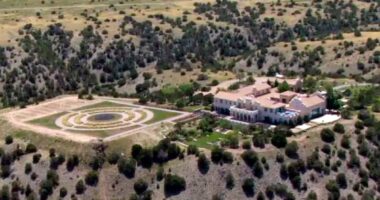Share this @internewscast.com
Governor Gavin Newsom (D-CA) has signed a new law that establishes a state agency dedicated to managing programs for the descendants of slaves. This marks the most recent phase in his ongoing efforts over several years to promote reparations policies, despite facing political and financial hurdles.
This initiative is a response to years of stalled discussions, pressure from activists, and budget constraints, as Newsom strives to advance this agenda in California, the most heavily populated state in the U.S.
Senate Bill 518 introduces the Bureau for Descendants of American Slavery under the California Civil Rights Department. It will be overseen by a deputy director appointed by the governor and divided into three major sections: Genealogy, Education and Outreach, and Legal Affairs. This agency will handle verifying individual ancestry, conducting public education campaigns about historical injustices, and ensuring legal compliance as reparations projects expand.
The bureau’s operation is contingent on future legislative funding, with the bill allowing the agency to secure finances from federal, state, and private entities. The law also sets forth privacy protocols for managing genetic and personal data and restricts public access to such information.
SB 518 extends previous initiatives launched by Newsom’s administration. In 2020, he approved AB 3121, creating a task force to examine and recommend reparations plans for Black Californians. This task force—formed following the George Floyd protests—later suggested payments exceeding $1 million per eligible person and proposed other changes such as repealing California’s ban on affirmative action, Proposition 209.
Initially, the governor kept his distance from direct cash reparations, stating the matter was “about much more than cash payments.” However, he has since signed several related bills, including a formal state apology for slavery in 2024 and laws presenting non-cash solutions such as opportunities for homeownership and educational benefits.
Newsom’s new agency comes after prior legislative setbacks. Amendments and disagreements within the California Legislative Black Caucus delayed the creation of a dedicated reparations office last year, prompting criticism from activists who accused lawmakers of bowing to political pressure. The governor ultimately vetoed an earlier proposal citing the lack of an agency to manage the program, an issue SB 518 is designed to address by creating a bureau to administer future reparations initiatives.
Under the new framework, the bureau’s Genealogy Division will certify individuals as descendants of enslaved persons based on specific lineage criteria, including ancestry tracing to individuals emancipated or classified as contraband before 1900. Certified descendants would then qualify for future state programs tied to reparations eligibility. The Education and Outreach Division will develop campaigns on issues such as redlining, gentrification, and housing discrimination, while the Legal Affairs Division will provide counsel to ensure compliance with state law.
California’s reparations debate has evolved over five years, from initial studies and public hearings to the creation of task forces and commissions focused on racial equity. The Racial Equity Commission, established by Newsom in 2022, also drew on recommendations from the reparations task force and continues developing a statewide “Racial Equity Framework.”
Though California entered the Union as a free state in 1850, supporters of the reparations effort argue the state perpetuated racial inequities through discriminatory housing, education, and employment practices. Others have questioned the feasibility of such programs, noting task force estimates exceeding $800 billion, more than twice California’s annual budget, and polling that shows most voters oppose direct cash payments.
















